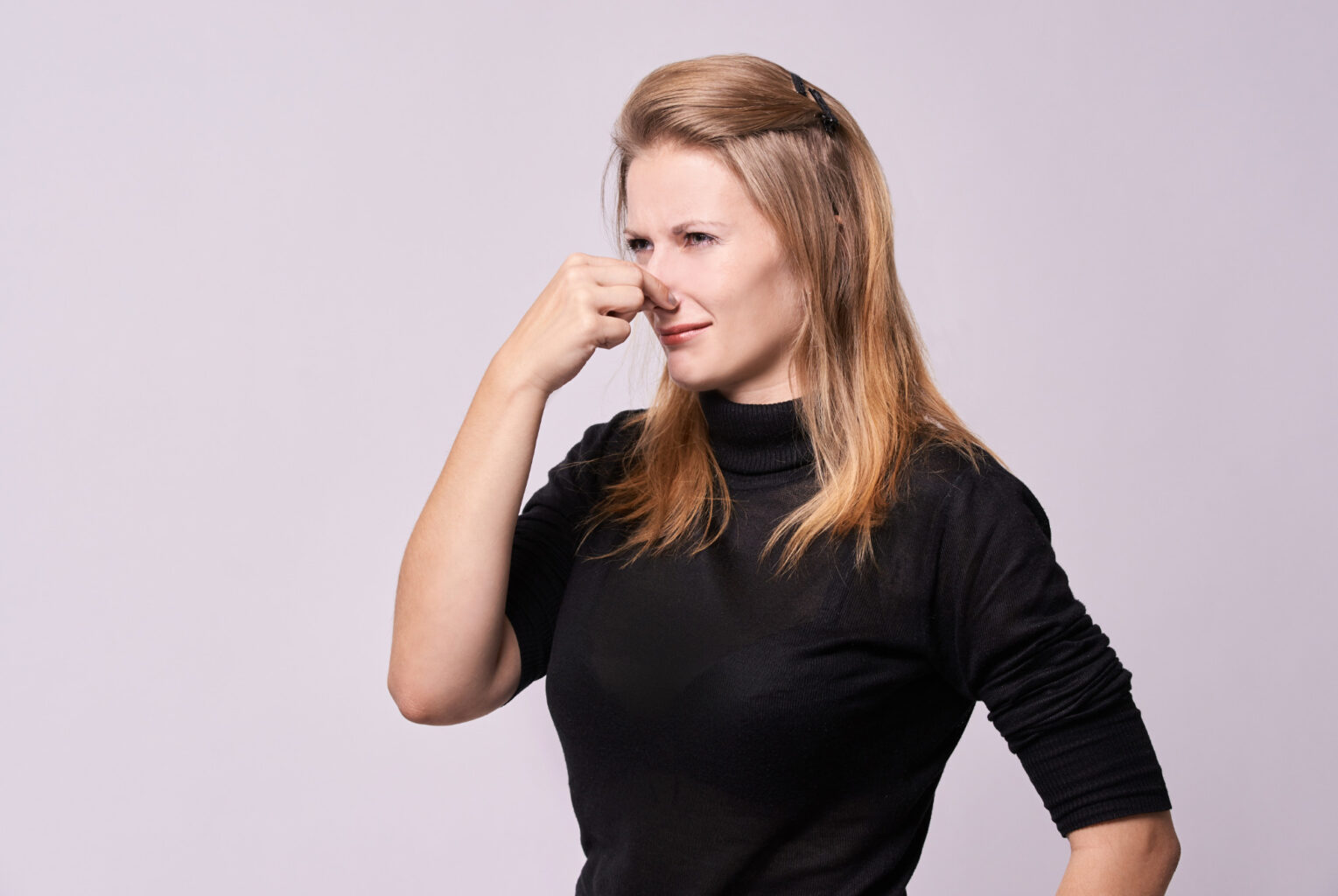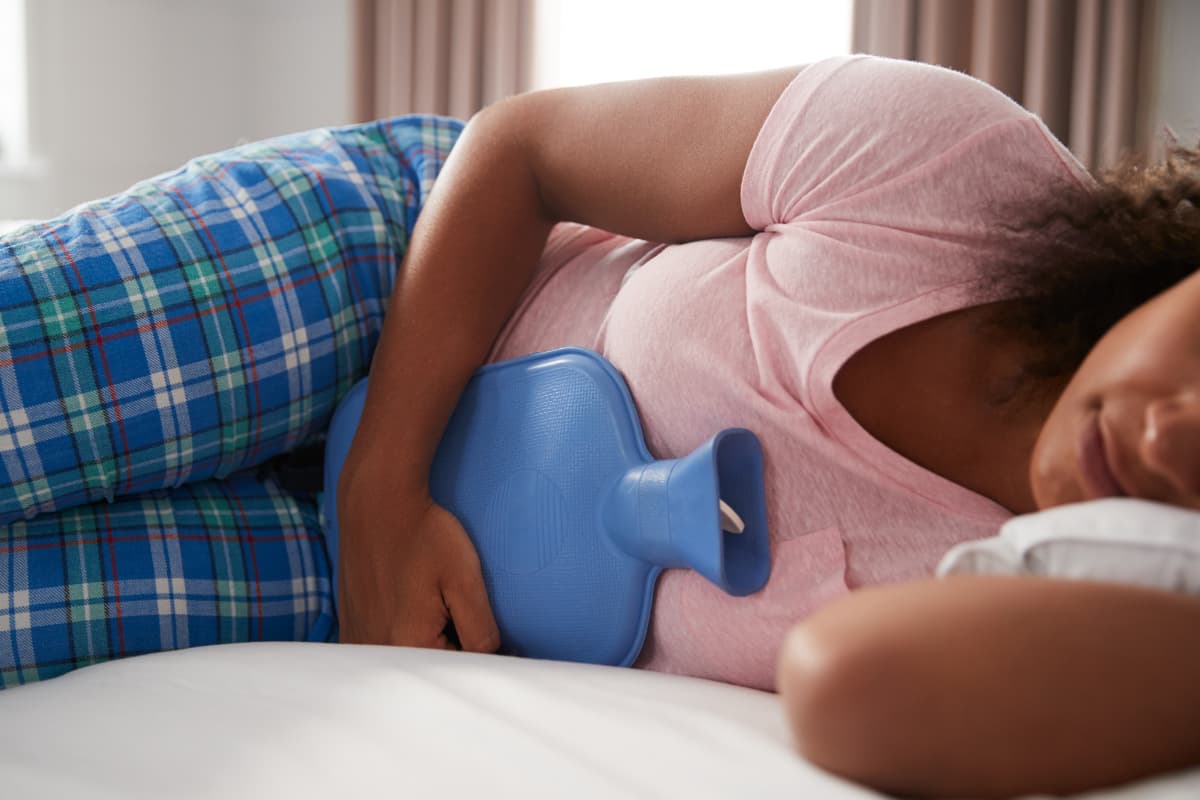Why Has My Smell Changed? Menopause and Body Odor Explained

Your body goes through all kinds of changes during perimenopause and menopause. One of the changes you may notice is the way you smell. Although it can be frustrating to have an odor, it’s important to know that it is a manageable component of menopause. Find out why your smell may change as you age, and learn what you can do about it.
Why Does Body Odor Increase During Menopause?
There are a few different reasons you may notice a change in your body odor as you age. Starting with perimenopause, your sense of smell changes, according to Harvard Health. You’ll notice your own smell more than you did in years prior. Even if the smell isn’t noticeable to others around you, chances are you’ll think it’s significant.
As you move through perimenopause and into menopause, your estrogen levels decrease, and your testosterone levels increase. It’s a hormonal shift that can result in the smell of your sweat changing — and not for the better. Speaking of sweat, menopause can get sweaty. Whether from hot flashes or night sweats, all that perspiration can lead to a smell you are not used to.
4 Body Odor Changes During Menopause
Your body produces two kinds of sweat: ‘eccrine’ and ‘apocrine.’ Eccrine sweat, from the eccrine glands, is lighter and doesn’t smell, according to the Cleveland Clinic. It’s the sweat that your skin’s surface produces to cool you down. The sweat coming from the apocrine glands, however, travels through your hair follicles, where it reacts with bacteria. An unfavorable smell occurs when sweat mingles with certain bacteria. This sweat is what you’re dealing with when it comes to body odor. Consider paying more attention to parts of your body that are more prone to producing an odor.
Underarms
You may notice the most significant change in your smell can be found in your underarms. It’s an area of your body that’s already prone to body odor – which is the reason for applying deodorant! The skin in your underarms rubs together and has little time to air out, creating a hot and moist environment. When you experience hot flashes and night sweats, this area will produce more sweat than usual.
Groin
You also have apocrine glands in your groin, so this is an area of the body that’s already producing odorous sweat. It’s another warm area of the body as skin rubs together without much room to breathe. More warmth in this area of the body means more sweat.
Breasts
You may be surprised to learn that your breasts also have apocrine glands. You may not have noticed the sweat on your breasts in the past, but it’s been there nonetheless. The area around your nipples is prone to increased sweat and smell during menopause, especially if you wear a bra more often than not that keeps the skin warm.
Feet
You’ll notice that all the areas of the body mentioned above have a few things in common: they’re all enclosed and warm. These are places that are hotspots for bacteria, which is why they tend to be sweaty and smelly. Your feet are an additional place to watch during menopause, as they can sweat and smell more than usual.
What Other Factors Can Influence Body Odor?
Stress
Stress can actually affect how you smell. Studies have proven that the odor your body creates is directly related to increased stress levels. Stress-induced sweat also comes from your apocrine glands, meaning a stressful day may end up being a smelly day, too.
Diet
Your diet can affect how you smell, especially if you’re eating foods known to produce gas. Foods like broccoli, cabbage, and asparagus all tend to contribute to gas. That gas can be released through a few different channels, one of which is through your skin.
Can Body Odor Indicate Illness?
An unfamiliar odor can sometimes be a symptom of a larger health issue. If you’ve noticed your urine smells more strongly than usual, it could be a urinary tract infection. If the inside of your ears smells, it could be a sign of an ear infection.
Smells that concern your breath could be signs of other health concerns, such as pneumonia or tuberculosis. Uremia and intestinal obstructions can also cause bad breath.
Talk to your healthcare provider if you’re experiencing any of these issues.
Tips for Reducing Menopausal Body Odor
There are plenty of treatment options for an increased body odor during menopause. Remember to keep your body clean. Bathing frequently and gently scrubbing all the places where sweat and bacteria collect will reduce odor.
For underarms, consider using an antiperspirant to help manage the sweat. Wash with an antibacterial soap to help minimize bacterial activity. Keep gentle pH-balanced body wipes with natural ingredients on hand to freshen up quickly on the go. Some people may use Botox to staunch the sweat glands from producing excess sweat. If this is a treatment that interests you, you can discuss options with your provider.
Adjust your diet to minimize foods that produce gas and smells. Limit known gas producers like garlic, onions, and red meat. Remember that spicy foods and caffeine are known hot flash triggers. Staying well-hydrated may also help.
Speaking of hot flashes, managing hot flashes and night sweats through holistic, hormonal, or non-hormonal can reduce sweating and keep you cool.
Wear layers you can quickly remove when hot and select clothing made from breathable fibers like cotton, silk, and wool. Tight clothing and synthetic fabrics can make you sweat more. For exercise, choose clothing that helps wick away moisture.
And while it isn’t always easy, it’s important to try to lower your stress levels when possible. Meditation and mindfulness programs, exercise, and journaling are all great strategies.
Sweating and body odor are both normal body processes. Now that you know more about why your body odor is changing, you can be empowered to know you’re not alone in finding the source of that new smell.
Hedy Phillips is a freelance lifestyle writer who specializes in mental health, overall wellness, and healthy lifestyles. In her 10+ years as a journalist, she’s been an editor at POPSUGAR and PEOPLE, and her bylines can also be found in CNET, Reader’s Digest, InStyle, and more.
Sign up for more unique women’s health content
By submitting this form, you agree to the Lisa Health Privacy Policy and Terms of Use


